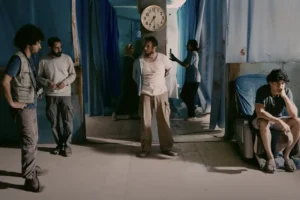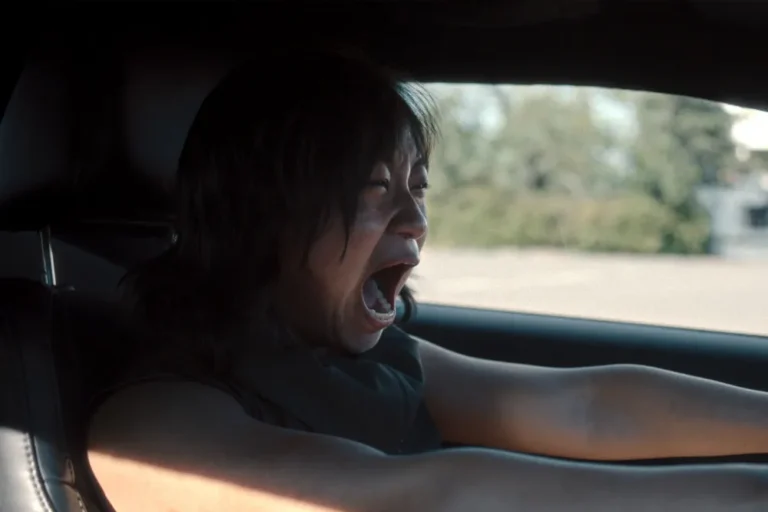According To The variety Greek officials sought to reassure local and foreign producers this week at the Thessaloniki Film Festival that the country’s 40% cash rebate is still on track, after the announcement last month that the Mediterranean nation was delaying plans to reopen its popular incentive scheme.
That decision came after Greece pressed pause on its cash-back program in May to clear more than €100 million ($107 million) in outstanding debts. Greek officials now insist the program is set to resume in January, with Leonidas Christopoulos, CEO of state audiovisual body Creative Greece, insisting the further delay was necessary for the government to square its accounts.
“You cannot be credible — especially abroad — if you have a huge backlog and reopen the platform,” Christopoulos told Variety. “It wouldn’t be credible.” Since launching in 2019, Greece’s rebate scheme has helped the Mediterranean nation land high-profile productions including Rian Johnson’s Netflix blockbuster “Glass Onion: A Knives Out Mystery” (pictured), Ruben Östlund’s Palme d’Or winner “Triangle of Sadness” and Maggie Gyllenhaal’s “The Lost Daughter.”
According to Christopoulos, the program has fully repaid 211 of the 319 applications that have been approved since its inception, for a total expenditure of €130 million ($139 million) in public funds — half of which was paid out in 2023. An additional €55 million ($59 million) was earmarked by the government this year to back previous approvals. Those payments, however, are still pending completion of each project’s audit process.
The government is also working to clear a logjam of applications for the rebate scheme dating back to 2023, with many projects stuck in limbo as they await approval. Christopoulos insisted that “over 70-80%” of those applicants will receive their decisions by the end of this year.
In the meantime, Creative Greece is also working with the finance ministry to ensure that local expenditures incurred by foreign productions while the rebate is officially on pause will still be eligible for the cash-back scheme. That includes Anonymous Content’s Biblical horror film “The Carpenter’s Son,” starring Nicolas Cage, and Prime Video’s own Bible-inspired series “House of David,” which are among the productions to lens in the Mediterranean nation this year.
Walid Said, of London-based film-financing house Head Gear Films, which has financed several projects that were shot in Greece — including Molly Manning Walker’s buzzy Un Certain Regard premiere “How to Have Sex” and Justin Anderson’s Rotterdam player “Swimming Home” — said that “delays and uncertainty” threatened to undermine the Greek rebate program’s credibility.
“One of the main things that we need to focus on is transparency and having a fully visible timeline,” said Said. “That is the most essential thing that we would look at when choosing the jurisdiction that we would lend against and the different rates. Because it has a direct correlation to how expensive this loan would be.
“The rebate is becoming more and more critical to every financing plan that we see,” he continued. “When things start getting volatile, volatility is a natural byproduct of things getting more expensive because there’s higher risk.” (Said stressed that his company was nevertheless satisfied with its experiences with the Greek rebate program.)
Meanwhile, the logjam of projects applying for the rebate had put producers in a tenuous position even before the system was put on hold. “We have been working with lenders…who have been kind enough to show faith in the Greek producers and lend against [letters of intent] and not against a binding decision,” said producer Amanda Livanou (“Buzzheart”). “We can all agree that this is not a viable way to go ahead.”
The situation only adds to growing frustration among Greek filmmakers after a recent overhaul to the industry’s governing bodies. At this year’s Cannes Film Festival, Greek officials launched a new government body, Creative Greece, that brings together the Greek Film Center, formerly responsible for domestic production, and the National Center of Audiovisual Media and Communication (EKOME), the body that manages the country’s 40% cash rebate and its parallel tax relief scheme. The merger is designed to streamline the growing Greek biz by uniting its various arms under a single banner.
Speaking in Thessaloniki, Livanou, who is also vice-president of the Audiovisual Producers’ Assn. of Greece (SAPOE), said the industry “fundamentally supported” the creation of the new body, adding: “We’ve always been in favor of having a streamlined, unified and long-term audiovisual policy.”
Yet at the association’s annual state-of-the-industry session during the festival, several producers expressed their frustration with what they characterize as the government’s continued inability to follow through on its promises, with SAPOE president and producer Fenia Cossovitsa (“She Loved Blossoms More”) saying that while the mandate of Creative Greece looks good on paper, “it remains to be seen and be proven” how it will be implemented in practice.
That includes plans to nearly double the budget for the organization’s selective funding scheme, with Christopoulos telling Variety he plans to earmark up to €7 million ($7.5 million) for the development and production of Greek audiovisual content — a boon for the country’s chronically underfunded industry.
This week in Thessaloniki, Greek filmmakers have been toasting 15 years since the country enjoyed its breakout year in 2009, when Yorgos Lanthimos’ astonishing debut, “Dogtooth,” won the Prix Un Certain Regard at the Cannes Film Festival and was nominated for an Academy Award, ushering in the Greek Weird Wave and kickstarting an era of “unprecedented success” for Greek filmmakers, according to veteran producer Konstantinos Kontovrakis (“How to Have Sex”).
“We’re frustrated. But let’s not forget that we’re here to celebrate 15 years of growth,” he said. “Our frustration is not without a strategy. We want to make sure we have another 15 years of growth.”
Meanwhile, despite the current uncertainty and the growing competition from other countries in the region, including Malta and Cyprus, Said said Head Gear — which is also backing “Sacrifice,” the English-language debut of French filmmaker Romain Gavras (“Athena”), currently shooting in Greece and Bulgaria — remains “very bullish on Greece overall.”
“We really like the producers that we’re meeting here. We really like the experiences that we’re having. It’s a very diverse terrain to shoot in,” he said. “We have this experience with Greece, and we’d like to keep it going and go even deeper into it as well.
“But at the same time, we need to see how things play out, especially in the next few months — understand the legislation, understand the transparency of the process, so we could come in and have a very upfront conversation with producers of what to expect and how we structure our investment.”
The Thessaloniki Film Festival runs Oct. 31 – Nov. 10.
















+ There are no comments
Add yours